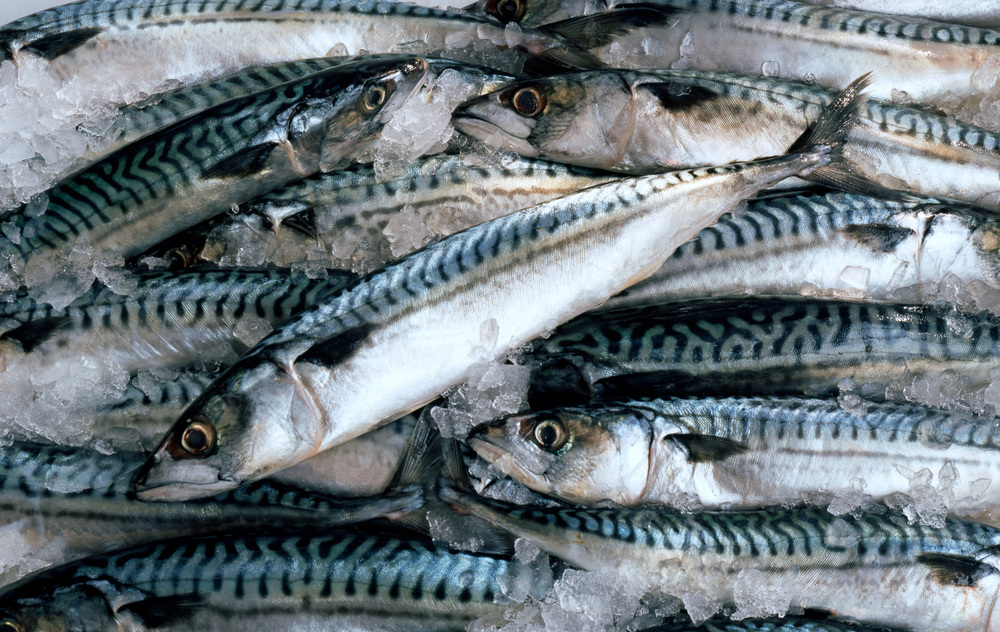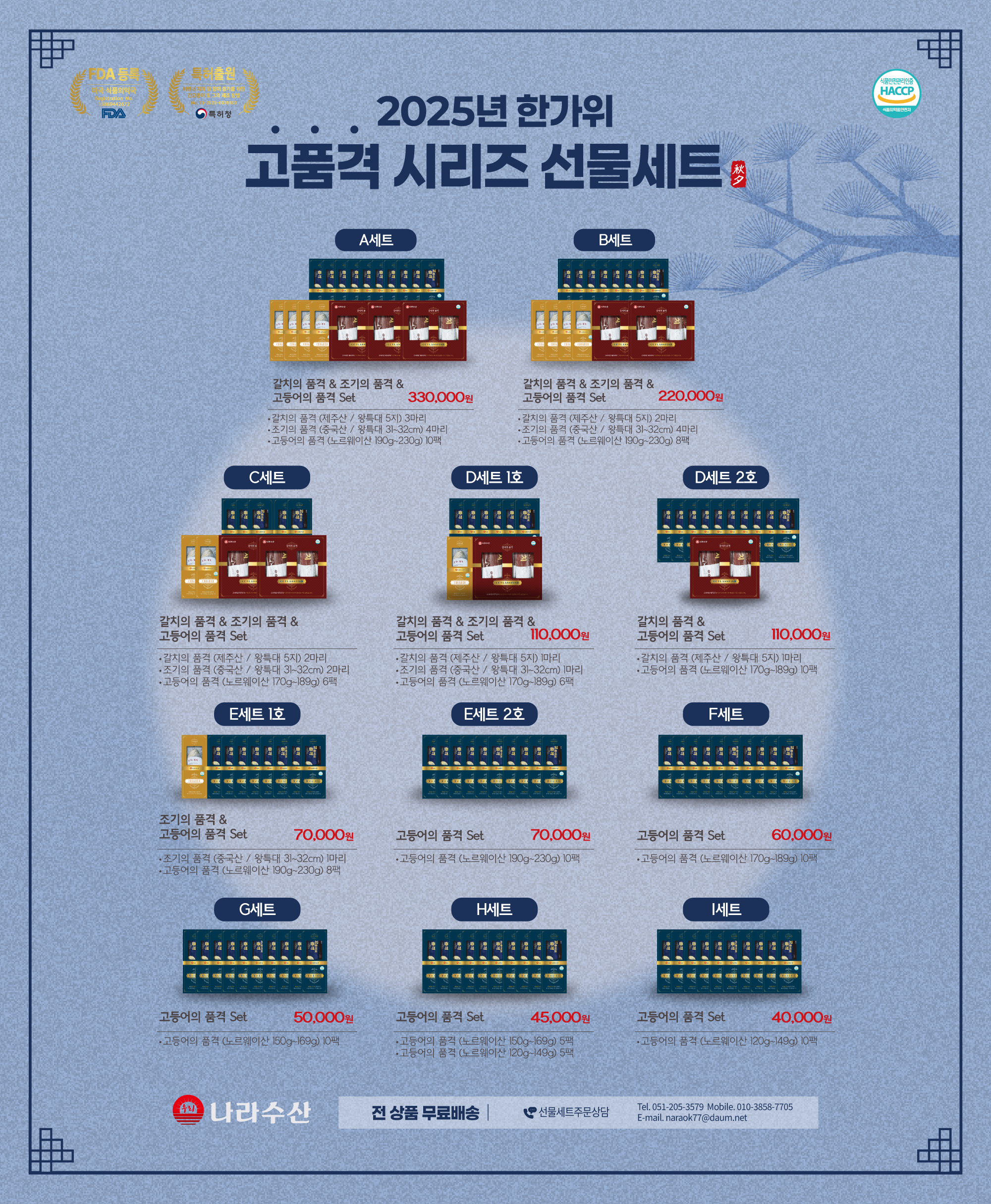
Terms related to mackerel
Jaban
It is also called Jwaban
For fish, raw fish are called fish, and those that can be salted with salt to extend the storage period are called ‘Jaban’. (mackerel, croaker, yellowtail, sardine, pomfret, herring, Spanish Mackerel, salmon, corbina, Gizzard Shad, Chinese herring, etc)
“Jaban” has been used as a side dish for farming season in mountain villages or rural areas when a lot of fish are caught. When salt is applied, dehydration occurs due to osmotic pressure, leading to the removal of moisture. As a result, microbial growth is inhibited through osmotic stress, causing cell separation. In this way, using ‘dried saury’ is advantageous for storage as decay is delayed.
Son
In the distribution industry, such as the supply and sale of mackerels or in traditional markets, the term ‘hand’ is commonly used when counting mackerels. One son means two mackerels. This term originated from the packaging method of fish.
If fish are stacked on the ground, the weight causes the fish at the bottom to spoil quickly. In no time, ants and other insects gather, so it is essential to hang the fish on a wall or a specialized hanger for sale. So, using straw-made strings, they started hanging slippery and odorous fish. However, due to the tying method of the straw string, it was challenging to tie just one fish, leading to the practice of tying two fish together.
Grilled Marinated Mackerel(GoGalbi)
(Busan History
Culture Encyclopedia)
. The nickname used in Busan for the dish of buying mackerel at the fish market, cutting it in half, and grilling it on a grill is “Gogalbi.” . Although the exact origin is uncertain, in the 1960s, when money was tight, lower-income individuals and college students enjoyed affordable grilled mackerel. Since mackerel has a lot of oil and produces a lot of smoke when grilled, , it is said that the dish reminded people of grilling pork ribs, leading to the name “Gogalbi.” . . Furthermore, it is said to have originated from the habit of grilling mackerel like ribs. Additionally, owners of “Gogalbi” restaurants also referred to it as “Gogalbi” using the Chinese character ‘高’ meaning ‘high’ to imply a higher price, catering mainly to students who enjoyed this dish.
“Gogalbi” was considered a precious food during a time when mackerel was abundant, providing a source of nourishment for hungry college students. In times of financial constraints and scarce food options, while not equivalent to beef or pork ribs, it still offered the satisfaction of having ribs.
In the 1980s, behind the old department store in Gwangbok-dong, Jung-gu, Busan, there used to be a dense concentration of “Gogalbi” specialty restaurants, with around 1 or 2 in every alley, earning the name “Gogalbi Alley.” However, since the 1990s, one by one, these establishments disappeared, and only a few managed to sustain the tradition. People who want to reminisce about the nostalgic atmosphere of the past still seek out Gogalbi Alley.
The mackerel, also a symbol of Busan, accounts for 84% of the nationwide distribution at the Busan Cooperative Fish Market. Additionally, every October, the “Busan Mackerel Festival” takes place in the vicinity of Songdo Beach.
Jaban Flipping.
In wrestling, the technique of grabbing the opponent’s belt on the back, pressing down on their back from above, and flipping them over while turning them backward is called “Jaban Flipping.” Additionally, it is also used to describe the back-and-forth movements when someone is in pain.
proverb
During the summer, mackerel, with their vigorous swimming against strong currents, covering long distances without rest, and sufficient food intake, have a fat content that can increase by up to 20% compared to other species.
Korea – During autumn, one does not give autumn mackerel and autumn pears to the daughter-in-law.
Japan– In the fall, do not give mackerel to your daughter-in-law.
The proverbs above convey the meaning that during the autumn season, mackerel becomes richer in oil, making it very delicious. In Japanese, it is referred to as サバ (傾, saba) or マサバ (頁傾, masaba). Regarding this, the commonly used Korean expression ‘sabasaba’ is said to have originated from the practice of offering mackerel as a bribe while making requests.
In the past, mackerel was highly regarded as a precious fish in Japan as well.
Nara Seafood Processing Procedure
Work processes that are carefully groomed and hygienically managed by veteran professionals
Nara Seafood Packaging Procedure
Safe domestic processing at HACCP-certified facilities, Individual vacuum packaging that is easy to store and easy to eat
Nutritional ingredients of mackerel
One serving (100g) of raw Atlantic mackerel provides 205 kcal, 13.9g of fat, 90mg of sodium, and 19g of protein and is free of carbohydrates, fiber, or sugar, according to data from the USDA.
- kcal : 205
- Fat : 13 - 9g
- Sodium : 90mg
- Carbohydrate: 0g
- Fiber: 0g
- Sugar: 0g
- Protein: 19g
- Magnesium: 76 mg
- Potassium: 314g
- Selenium: 44.1 g
Brochure
We strive with pride as the top mackerel company in South Korea, driven by a sense of accomplishment and a commitment to sound corporate values.

